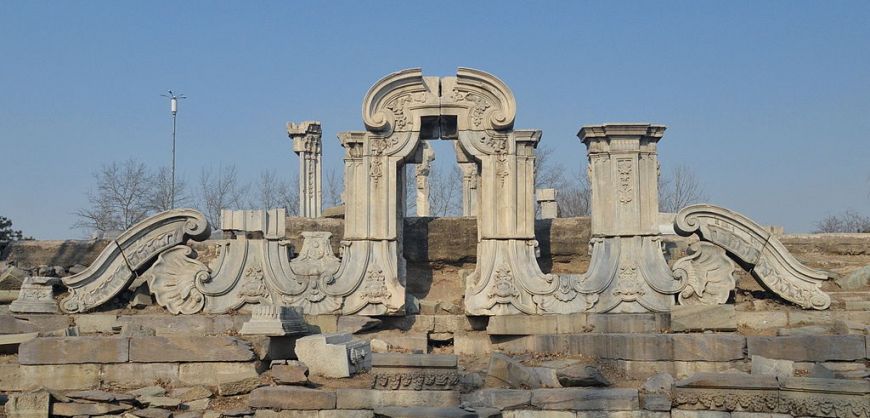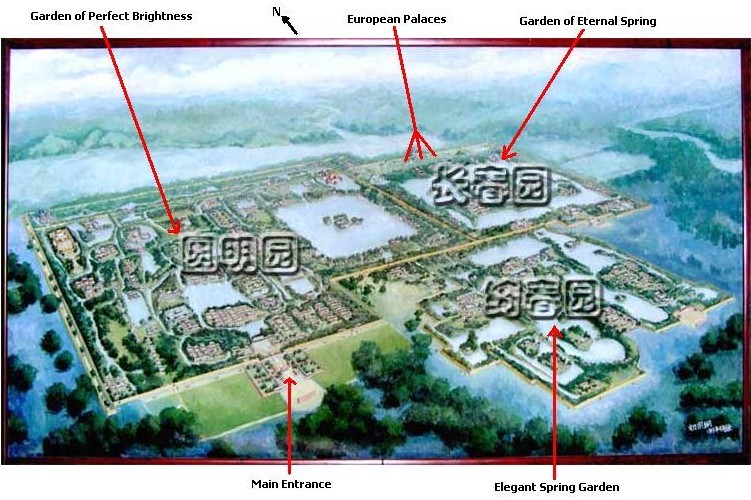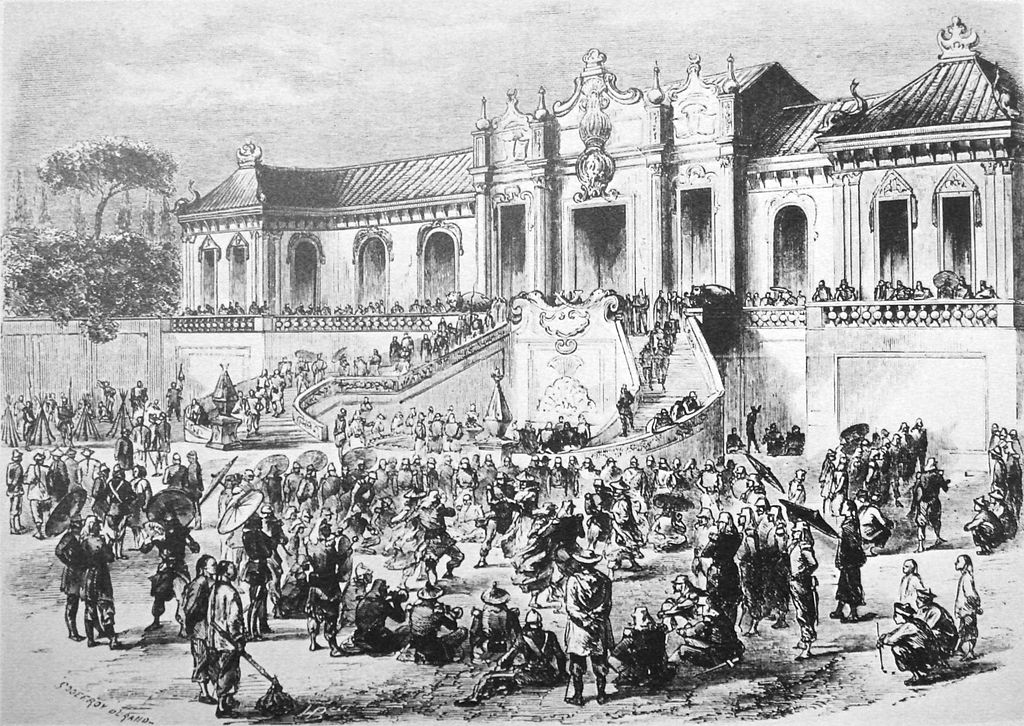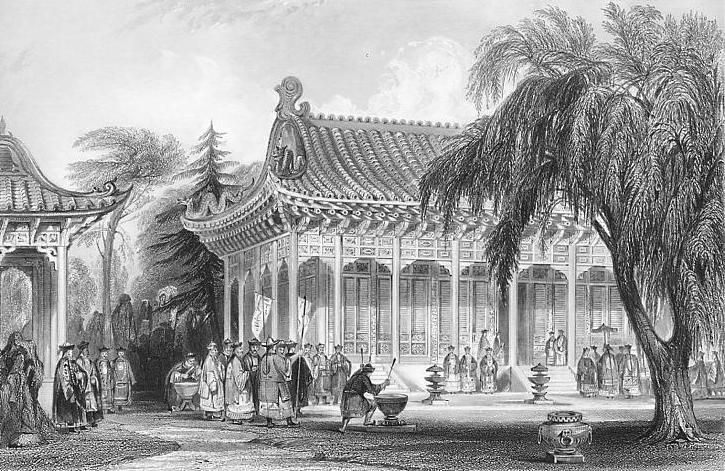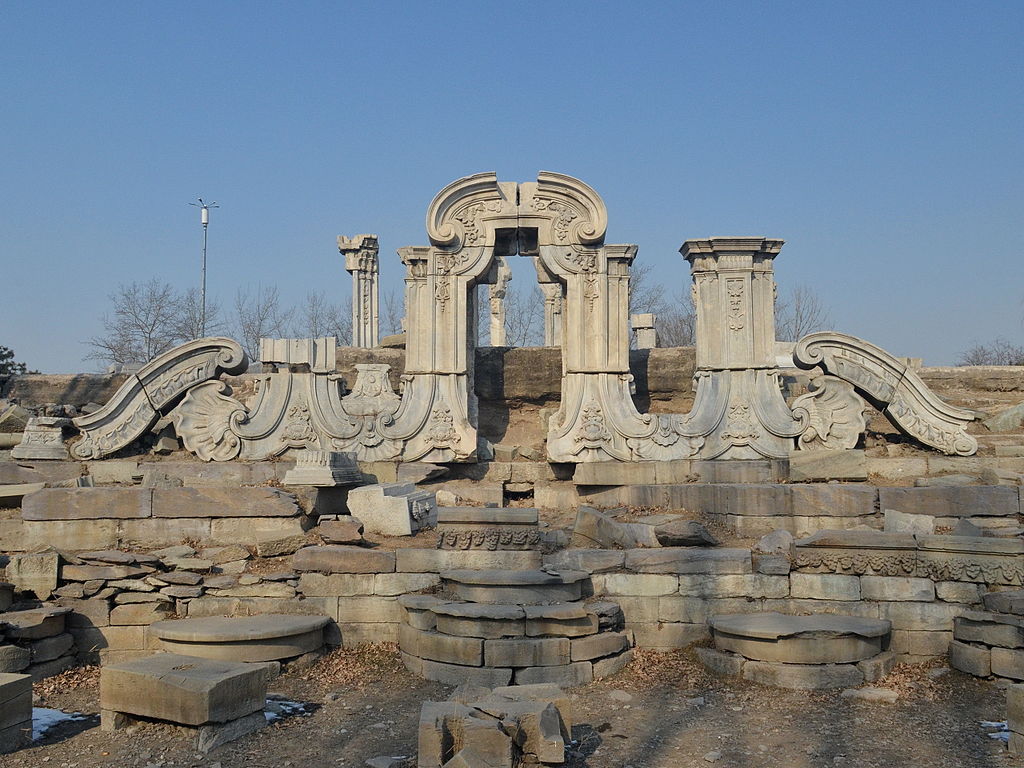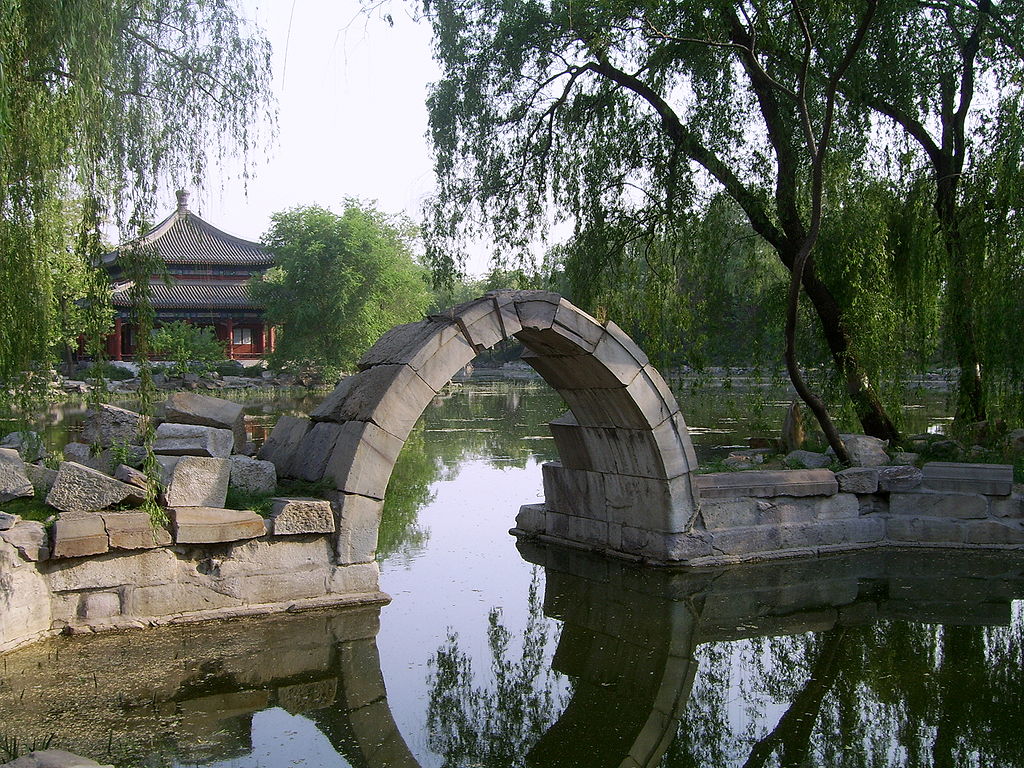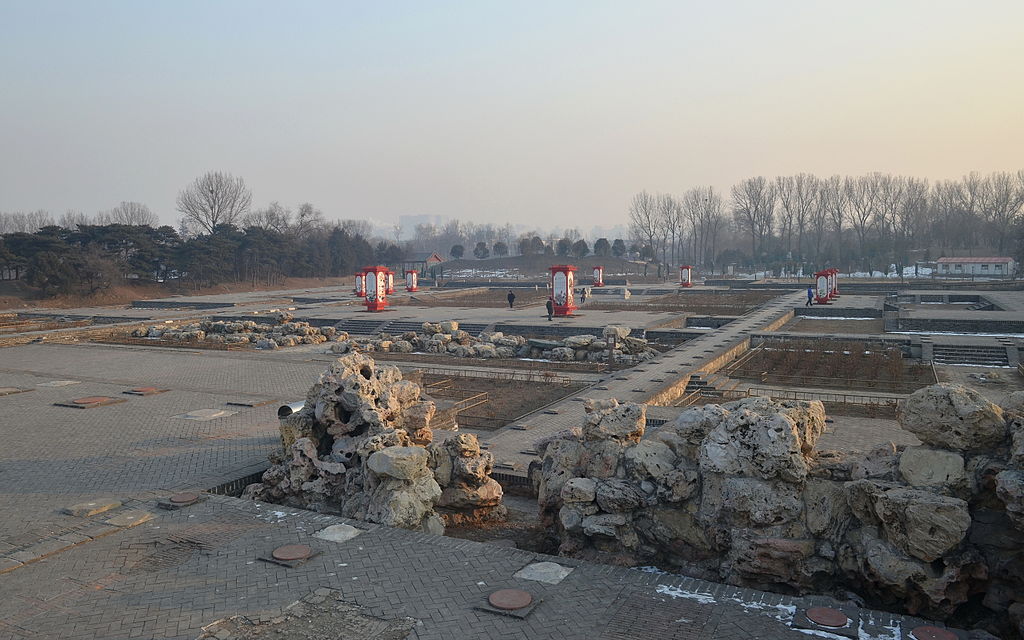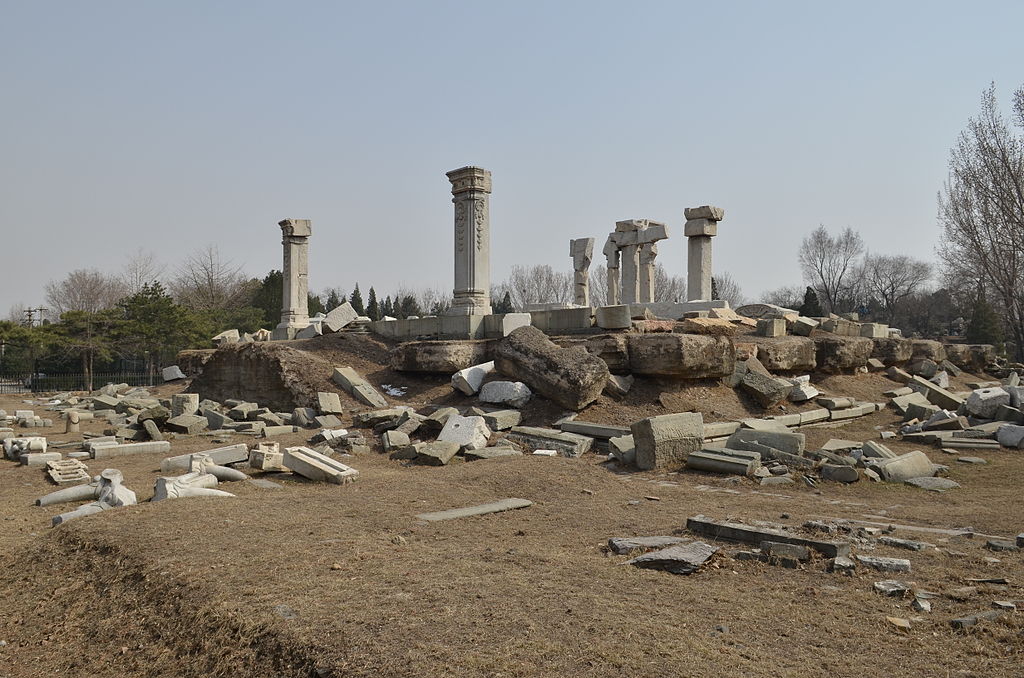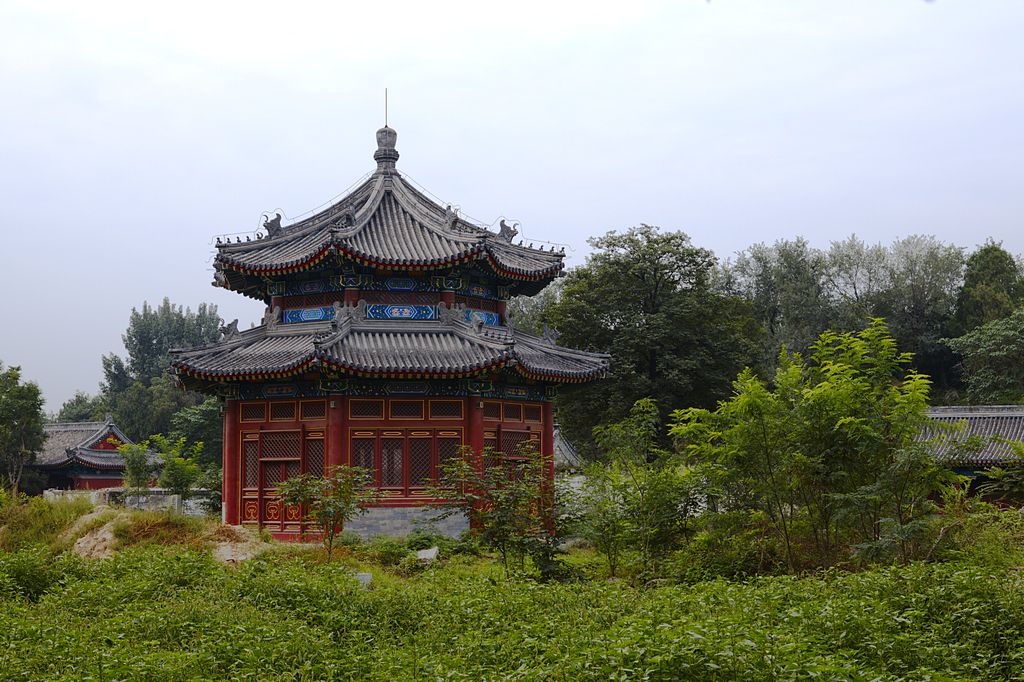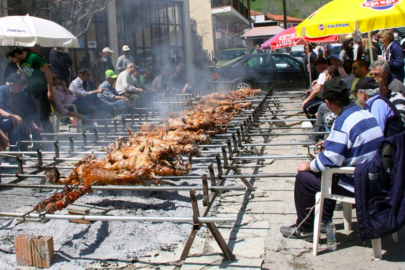Thomas Bruce, the 7th Earl of Elgin and 11th Earl of Kincardine, brought heartbreak to generations of Greeks for his pillaging of half of the Parthenon Marbles. Following in his father’s footsteps, James Bruce – the 8th Earl of Elgin – is notorious in China for ordering the destruction of the beautiful Old Summer Palace, known as Yuan Ming Yuan (the Gardens of Perfect Brightness), in Beijing.
At the time, he was serving as the British High Commissioner during the Second Opium War when he ordered the advancement of the army. In retaliation for the imprisonment, torture and execution of almost twenty European and Indian prisoners he ordered the destruction of the palace and reduced it to smithereens. Known as China’s Ground zero, every Chinese school child is taught that the site once held the most beautiful collection of architecture and art.
Initially, the army’s intent was to plunder the palace. Fragments of the collection at the exquisite palace were “saved” as they were looted by troops that helped themselves to the porcelain, silks and ancient books. But mostly, they destroyed what they found. One witness wrote: “In body and soul they were absorbed in one pursuit which was blunder, blunder, plunder.”
Even Lord Elgin recorded the very horror he had ordered in his diary, when he wrote: “War is a hateful business. The more one sees of it, the more one detests it.”
That could have been the end of the cultural destruction, but What Lord Elgin hadn’t counted on was retaliation. The 20-membered delegation that had gone to negotiate Chinese surrender were taken prisoners and died an excrutiatingly painful death.
Had this not happened, the palace would still exist in half its glory, much like the Parthenon exists today following the 7th Earl’s passage through Athens. Instead, the 8th Lord Elgin responded to the executions by ordering the absolute cultural destruction of the palace. It took days and days of hard work to destroy the magnificent buildings that were part of the cultural heritage of the Chinese people.
27-year-old captain Charles George Gordon wrote:
“We went out, and, after pillaging it, burned the whole place, destroying in a vandal-like manner most valuable property which [could] not be replaced for four millions. We got upward of £48 apiece prize money…I have done well. The [local] people are very civil, but I think the grandees hate us, as they must after what we did the Palace. You can scarcely imagine the beauty and magnificence of the places we burnt. It made one’s heart sore to burn them; in fact, these places were so large, and we were so pressed for time, that we could not plunder them carefully. Quantities of gold ornaments were burnt, considered as brass. It was wretchedly demoralising work for an army.”
Victor Hugo in his “Expedition de Chine”:
“Two robbers breaking into a museum, devastating, looting and burning, leaving laughing hand-in-hand with their bags full of treasures; one of the robbers is called France and the other Britain.”
He helped organize an auction where the spoils were sold to raise money for the families of dead or wounded soldiers. These days, many of these works sit in all kinds of private and public collections. The Chinese feel resentment, much like the Greeks feel when considering the theft of the Parthenon Marbles.
For instance, seven of the zodiac heads that were part of the palace’s collection are in China, whereas the other five are sitting in foreign collections. The National Treasures Fund, affiliated to the Chinese Ministry of Culture, is seeking ways to track down the artworks and take them back to China, however the British museums show the same arrogance that their earls showed when destroying other culture’s heritage.
These days, Lord Elgin tells the BBC that it’s better to look forward than back all the time regarding the events of 1860, and the same could be insinuated for the Parthenon Marbles. It seems that arrogance and disregard for other culture’s can be considered the Elgin legacy.

